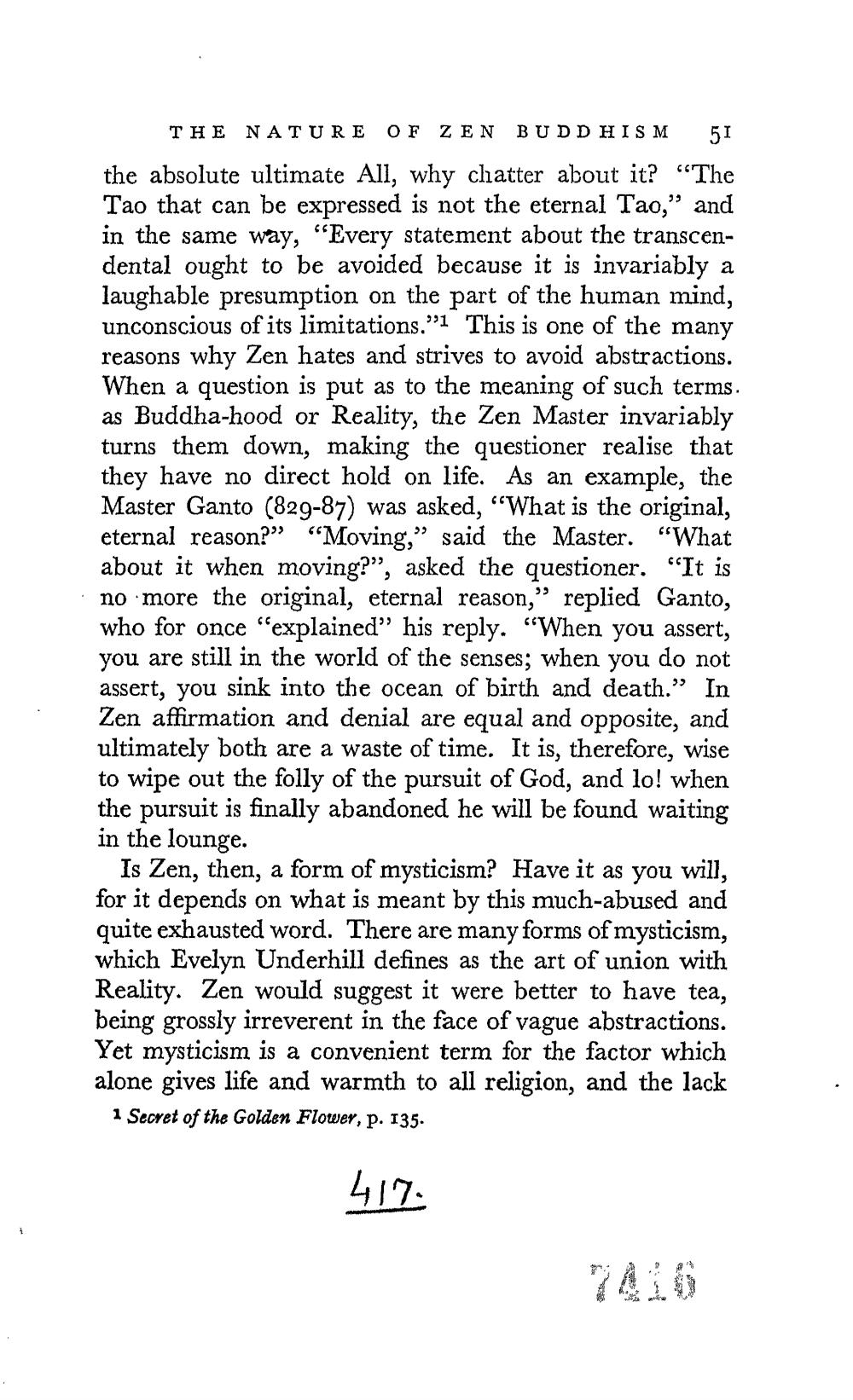________________
THE NATURE OF ZEN BUDDHISM 51 the absolute ultimate All, why chatter about it? “The Tao that can be expressed is not the eternal Tao," and in the same way, "Every statement about the transcendental ought to be avoided because it is invariably a laughable presumption on the part of the human mind, unconscious of its limitations."1 This is one of the many reasons why Zen hates and strives to avoid abstractions. When a question is put as to the meaning of such terms. as Buddha-hood or Reality, the Zen Master invariably turns them down, making the questioner realise that they have no direct hold on life. As an example, the Master Ganto (829-87) was asked, "What is the original, eternal reason?" "Moving," said the Master. "What about it when moving?”, asked the questioner. "It is no more the original, eternal reason,” replied Ganto, who for once "explained” his reply. “When you assert, you are still in the world of the senses; when you do not assert, you sink into the ocean of birth and death." In Zen affirmation and denial are equal and opposite, and ultimately both are a waste of time. It is, therefore, wise to wipe out the folly of the pursuit of God, and lo! when the pursuit is finally abandoned he will be found waiting in the lounge.
Is Zen, then, a form of mysticism? Have it as you will, for it depends on what is meant by this much-abused and quite exhausted word. There are many forms of mysticism, which Evelyn Underhill defines as the art of union with Reality. Zen would suggest it were better to have tea, being grossly irreverent in the face of vague abstractions. Yet mysticism is a convenient term for the factor which alone gives life and warmth to all religion, and the lack 1 Secret of the Golden Flower, p. 135.
417




